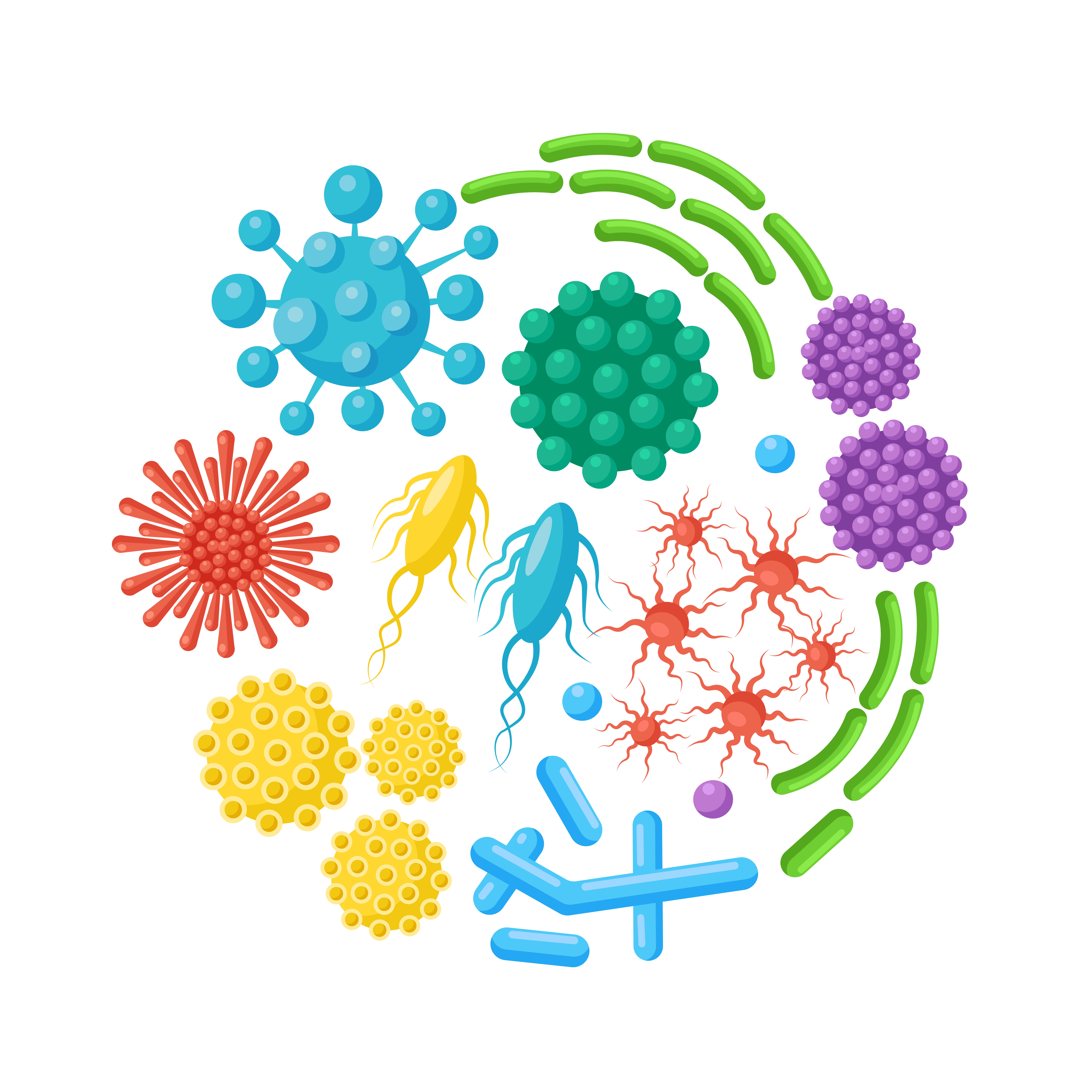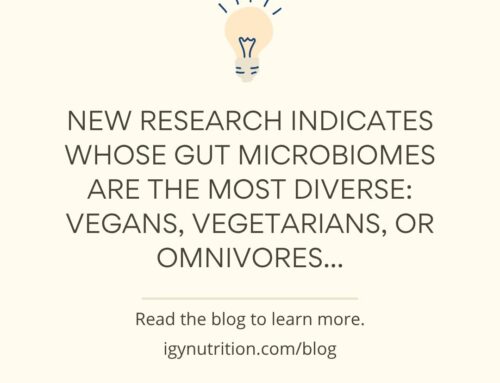Digestive Health and Gut Health has become the new “hot topic” for the media. We have all been hearing, reading, and learning about gut health in the last few years. But do you really understand the hype? Do you know how your digestive tract works and its implications? Do you know what a microbiome is?
If you feel lost in this ocean of information, this article is for you. We will go over the different concepts of digestive health, and what it means for you, in simple terms. Let’s go!
Here are 5 facts you need to know about your gut: 1. We are bacteria
Our gut is home to more than 100 trillion bacteria. Trillion! That’s 10 times more bacteria in our gut than all the human cells in the entire body. This is why we call the gut a microbiome, because it is home to bacteria. They play a vital role in our metabolism and health. It’s a mutually beneficial relationship; the bacteria happily feed on dietary fiber while they perform a variety of duties, including helping to make vitamins B and K, repressing growth of harmful microorganisms, and breaking down and fermenting dietary fiber. This breakdown of fiber results in a release of beneficial, anti-inflammatory short chain fatty acids that are a vital energy source for our bodies.
2. Firmicutes and Bacteroidetes
There is over 400 know diverse bacterial species, and some of them are beneficial while others are harmful. This is important, because it all comes down to whether you have more “good” or “bad” bacteria in your gut. The beneficial bacteria are called bacteroidetes, and the harmful bacteria are called firmicutes. Even though the gut needs small amounts of “harmful” bacteria to carry out important functions you need to have a healthy ratio of bacteroidetes to firmicutes to have a healthy gut flora. When a diet is high in fat, firmicutes increase, and an overgrowth of firmicutes has been linked to obesity, and chronic systemic inflammation, which is known to contribute to other health problems such as diabetes and heart disease. On the contrary, a diet high in fiber will help bacteroidetes increase.
3. Your gut is like a garden
Now you know that there are two types of bacteria, the beneficial ones that help supply important nutrients and vitamins, and provide immune function; and the harmful ones, that contribute to inflammation and absorb fat, which can lead to weight gain. When harmful bacteria are present in your gut, the space for good bacteria is limited. Think of a garden overrun with weeds. Just like the
weeds, bad bacteria leave no room for beneficial flora to grow, taking up vital nutrients needed to survive. You need to get rid of some of the harmful bacteria, and increase the number of good bacteria in your gut; with probiotics for example.
4. What happens in your gut does not stay in your gut
More than 70% of your immune system is in your gut. That means that the complex system that protects you and keeps you healthy is influenced by your intestinal flora and what happens there. Our gut flora is like the gatekeeper, and it cannot allow harmful bacteria to penetrate the boundaries. When it does come across harmful bacteria the gut flora signals the immune system to take action. This is basically the alarm sounding, telling the body that there is an intruder. If our immune system is working overtime to capture bad guys and put out fires, then we are left with an immune system that is not functioning at its optimum. This is why, most of the time when your immune system is weak and depleted, it can be traced back to what is happening in your gut, and you can enhance your immune system by changing what is going on in your microbiome.
5. Your gut is your second brain
Our brain and gut are connected by an extensive network of neurons and a highway of chemicals and hormones that constantly provide feedback about how hungry we are, whether or not we’re experiencing stress, or if we’ve ingested a disease-causing microbe. This information superhighway is called the brain-gut axis and it provides constant updates on what is happening in each part of the body. This connection between the gut and the brain means that poor digestive health can lead to mood disorders and other neurological disorders. Recent evidence indicates that not only is our brain “aware” of our gut microbes, but these bacteria can influence our perception of the world and alter our behavior. For example, the gut microbiota influences the body’s level of the neurotransmitter serotonin, which regulates feelings of happiness. More and more research is being done on the implications of the gut flora on mood, and how it is linked to depression for example.
I hope this article helped you better understand the role of gut flora on your overall body health and why it is important to take care of your digestive health. In the next blog post, we will talk about what is good for your gut and what can negatively impact your microbiome.
https://chriskresser.com/9-steps-to-perfect-health-5-heal-your-gut/ http://drpassov.com/grow-thin-gut-bacteria-by-eating-more-veggies/
http://breakingmuscle.com/health-medicine/5-quick-tips-for-healthy-guts-and-a-healthier-immune- system
http://www.scientificamerican.com/article/gut-feelings-the-second-brain-in-our-gastrointestinal- systems-excerpt/




